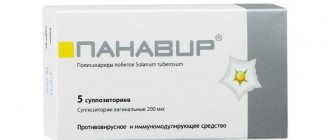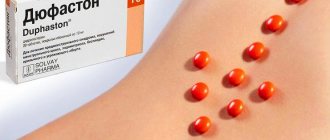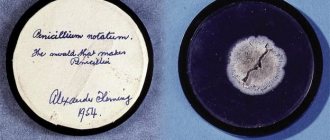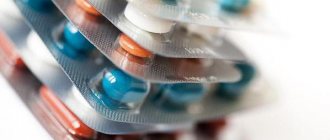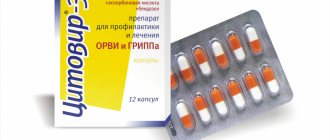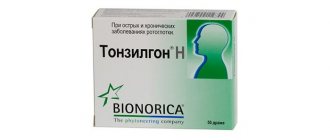Antibiotics have taken a strong place in the treatment of many diseases. They are used where you need to drink, and where you don’t need it. The desire to recover faster makes people mindlessly use this pharmacological group of drugs. But many people forget about the caution and consequences of using such drugs. Of course, without antibacterial agents it would be impossible to cure such complex diseases as purulent tonsillitis, pneumonia, various sepsis, and so on. But thoughtlessly using them without a doctor’s prescription will not only not help you recover, but will also harm the body.
With bronchitis, you do not need to take antibiotics in all cases. With a viral etiology, such drugs will not have any effect on the temperature and general condition of a person.
Antibacterial drugs for hyperthermia
Bronchitis is often accompanied by fever. If the diagnosis is established and hyperthermia is associated with inflammation of the bronchial mucosa, the high temperature does not drop for more than 4-5 days, the symptoms do not go away, a doctor’s consultation is necessary. In this condition, antibiotics are required. Deterioration of the condition and ineffectiveness of treatment with antiviral drugs indicates a bacterial causative agent of the pathology. Before using antibacterial agents, the doctor must determine that the diagnosis is correct. Then, based on the patient’s condition, the question of how many days to take antibiotics is decided.
Tetracyclines
Basic chemical structure of tetracyclines Like penicillins, they are one of the earliest classes of antibiotics. They were discovered in the 40s of the last century, but currently their use is limited. They have a bacteriostatic effect associated with disruption of protein synthesis in the microbial cell. Currently, many microorganisms have become resistant to tetracyclines, but drugs (natural tetracycline and synthetic doxycycline) remain important for rickettsiosis, chlamydial infections, and severe acne. Tetracyclines have a large number of side effects. They disrupt the functions of the gastrointestinal tract, affect the central nervous system (dizziness, increased intracranial pressure), cause metabolic disorders (impaired protein metabolism with a predominance of catabolism, increased azotemia), lead to disturbances in the formation of bone tissue, and cause allergic reactions that cross all tetracyclines. Tetracyclines have a very high hepatotoxic effect, up to the development of fatty degeneration or liver necrosis. Risk factors for hepatotoxicity include rapid intravenous administration of the drug, underlying liver dysfunction, pregnancy, and renal failure. When tetracyclines are taken orally simultaneously with antacids containing calcium, aluminum and magnesium, sodium bicarbonate and cholestyramine, their bioavailability may decrease due to the formation of non-absorbable complexes and an increase in the pH of the gastric contents. It is not recommended to combine tetracyclines with iron supplements, since this may interfere with the absorption of both. Carbamazepine, phenytoin and barbiturates increase the hepatic metabolism of doxycycline and reduce its concentration in the blood, which may require dose adjustment of this drug or replacement with tetracycline. When combined with tetracyclines, the effect of estrogen-containing oral contraceptives may be weakened. Tetracyclines may enhance the effect of indirect anticoagulants due to inhibition of their metabolism in the liver, which requires careful monitoring of prothrombin time. There are reports that when tetracyclines are combined with vitamin A preparations, the risk of pseudotumor cerebri syndrome increases.
Record all reception features
Keeping a diary of taking an antibiotic is a measure to prevent undesirable consequences of therapy. During the course, it is necessary to record on paper all the data related to taking the drugs: time, dosage, dietary habits, as well as the nature of the disease and complications that arise (allergies, gastrointestinal disorders, pain, etc.). Based on the data presented, the doctor will be able to select the safest treatment regimen for a particular patient. It is especially advisable to follow this recommendation in the treatment of children.
Source: depositphotos.com
After completing the course
When antibiotic treatment is completed, it is necessary to help the body cope with its consequences. Here we also need probiotic products that improve digestion.
I would advise you to include several products from the list in your diet, you can do everything:
- sauerkraut;
- artichokes;
- spinach;
- whole grain cereals;
- yoghurts, but always natural, without adding toppings;
- kefir;
- heat-treated fruits and vegetables;
- Brussels sprouts;
- parsley;
- sea buckthorn
I will highlight sea buckthorn berries separately. When used correctly and in moderation, this product normalizes the digestive system, improves metabolism, helps in the treatment of ulcers and gastritis, and relieves heartburn. You can brew teas with berries, make compotes or jelly from sea buckthorn.
You can drink 1 tbsp of sea buckthorn oil at night. l. as a medicine. It will help heal and restore the intestines.
Seasonal product. How to properly prepare rose hips Read more
Basic postulates in the use of antibacterial therapy
- Taking antibiotics should be justified. If you take a drug and it doesn't help, it's not a bacterial infection. Antibiotic treatment should be started in case of prolonged hyperthermia, purulent discharge, abnormal blood composition in the results of a detailed analysis (with an increased number of leukocytes, ESR, shift in the leukocyte formula), deterioration of the patient's condition after the recovery process.
- Chronicle of antibiotic treatment. To know the body's reaction to these drugs, you should make a notebook of their use. This is necessary for adults, but especially for children. It is necessary to note the names of the medications taken, the course of treatment, dosage, and for what diseases they were prescribed. Sometimes a person has an allergic reaction to certain groups of antibacterial agents. You need to remember this and inform your doctor about this every time you prescribe these drugs.
- Do not advise your doctor which drug is best to take. This also applies to self-medication: if the patient took antiviral drugs, but they turned out to be not very effective, this is not yet a reason to run to the pharmacy for powerful antimicrobial agents. Prescribing a drug with a certain active ingredient and its quantity is the doctor’s job. He may prescribe an antimicrobial drug at the patient's urgent request, but this does not mean that the treatment will be effective.
- Ideally, before prescribing such drugs, it is necessary to take a bacterial culture and determine the patient’s sensitivity to different types of antibacterial drugs. This provides the basis for the most effective treatment. But often doctors and patients do not have time to wait for the flora to be sown, since this takes up to 7 days, and therapy is needed already on the first day of illness.
- Compliance with instructions and purpose. It is wrong to believe that you can take antibiotics in the same way as regular medications. Equal periods of time should pass between taking the required dose of these medications. Antibiotics contain a potent active substance that lasts for a certain period of time. Often this is from 6 to 12 hours. In order for this substance to constantly act on bacteria, and there are no periods of time for their active reproduction, you need to take the drug every day at the same time. It is also incorrect to take the medicine after breakfast, lunch and dinner, if the dosage is divided into 3 times a day. In this case, the intervals between doses are 8 hours.
- Amount of days. How many days should I take antibiotics? - This is a question that interests many. You don’t want to drink them for a long time, so as not to harm the natural intestinal flora; several days of taking them may not be enough to restore the patient’s health. Patients who drink these drugs for 2-3 days develop resistance of the pathological microflora to this drug. And vice versa, if you drink longer, this does not mean you will recover faster, it all depends on the severity of the disease and the specific drug. But there are long-acting drugs that are taken for 3 days, and the effect on bacteria lasts for several more days. These are medications such as Sumamed, Zi-factor, Azicide, Azithromycin, Hemomycin, Ecomed. There are other regimens for taking these drugs, which are adjusted by the doctor.
- The reception does not stop. Due to the heavy workload, some patients forget to take medications, so antimicrobial agents are taken intermittently. This absolutely cannot be done, nor should you stop taking it immediately after you feel better. The course of treatment must be completed, even if the person felt better the day after taking it. How many days can you take these medications after recovery? Doctors say that if the course of treatment is not completed, and the recovery process is already ending, these medications should be taken for another 2-3 days.
- Dosage. How effective the dosage of the drug is is determined by the doctor. Only he can adjust the dose of the antibacterial agent. With insufficient doses of such drugs, the likelihood of resistant bacteria appearing in the body increases, which is much more difficult to cure. Exceeding the dosage entails side effects and poisoning of the body with the active substance. It is for this reason that all adult patients are urged to consult with specialists before starting antimicrobial treatment.
- Features of reception. We have decided on the question of how many days you can take an antibiotic; it is also important to know the nuances of taking these medications. Each drug has its own instructions, which describe how to take it by day and time. There are substances that should be taken during, after, or before meals. If you need to take the medicine before meals, the best time is an hour before meals. If the drug must be taken after a meal, it is better to do so after 1-2 hours. Take the medicine only with water without gases. But in some cases, it is recommended to use the juice to take a medicine. Before taking, you should carefully study the instructions.
- We treat one thing, we don’t allow another. To prevent a person from treating one disease and acquiring another, during a course of antibiotic treatment, medications should be taken to restore beneficial intestinal flora. Antimicrobial drugs affect not only pathological bacteria, but also natural flora. To restore it, you need to drink probiotics: Linex, Canadian yogurt, Lactovit, Bifidumbacteria, Simbiter and so on. They should not be taken together with antimicrobial agents, but between them.
- To restore the body's strength during treatment, it is necessary to provide the patient with a diet rich in vitamins. At this time, you should refrain from fatty, fried, salty foods. Do not use smoked meats, canned food, sour and bitter foods, or alcohol. The liver should recover during the course of treatment, and not work for two. In order for the body to recover faster, it is better to eat juices, fruits, vegetables, cereals, and a minimum of meat.
The use of antibiotics is sometimes vital; without them it is impossible to cure some diseases in the acute and chronic period. But you should not get carried away with these drugs - this is fraught with a sharp weakening of the immune system and repeated illnesses. With the constant recurrence of diseases such as urethritis, cystitis, vaginitis, colitis, tonsillitis, pneumonia, bronchitis and some others, it is imperative to do a bacteriological examination of the biomaterial. This will help determine the true cause of the disease, as well as resolve the issue of prescribing an effective remedy for treating the pathological condition. You may not even need to use antimicrobials.
Prebiotics
Prebiotics are nutrients fermented by lactobacteria and bifidobacteria. They ensure the vital activity of these bacilli and stimulate their reproduction. Prebiotics include:
- Duphalac;
- Ambien;
- Pamba;
- Hilak-Forte.
If the drug is used incorrectly, they can cause a number of adverse reactions, stomach upset and electrolyte imbalance. The choice of prebiotic should also be made only by a doctor. The drug should be taken in the concentrations specified by the doctor three to four times a day.
How do they differ from antiseptics and antimicrobials?
Antimicrobial agents are a broader concept that includes everything that kills microorganisms, that is, viruses, bacteria, fungi, and protozoa.
Antiseptics are drugs that destroy microorganisms on surfaces, for example on the table, on the skin of the hands.
Antibiotics act only on bacteria and work inside the body, where antiseptics cannot reach. In a narrow sense, antibiotics include only drugs that are of natural origin or similar to natural ones.
How do they work?
The purpose of the antibiotic is to penetrate the body, attach to the bacteria and either destroy it or prevent it from multiplying: then it will die itself, and a new one will not appear.
To do this, antibiotics find a target. Typically it is a protein, enzyme, or part of the DNA of a bacterium. By acting on the target, the antibiotic disrupts the processes occurring in the microorganism. This is a very simplified description.
Each antibiotic has its own target and mechanism of action, so different drugs are used for different pathogens. There are also broad-spectrum antibiotics: they destroy many types of bacteria at once.
Are probiotics necessary?
Antibiotics kill bacteria, but they do not distinguish good microorganisms from bad ones. These powerful drugs destroy vital bacteria necessary for the normal functioning of the digestive and immune systems. The best way to replenish losses is to consume probiotics, which contain live bacteria that normally inhabit the intestines.
Probiotics are prescribed during and after a course of antibiotics to restore intestinal microflora and, therefore, immunity. It is important to “dilute” the intake of medications: it is advisable to take the probiotic a couple of hours before or several hours after the dose of the antibiotic. The duration of use of probiotics after a course of antibiotic therapy is determined by the doctor.
For detailed advice on how to take antibiotics correctly, please contact your healthcare provider.

